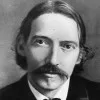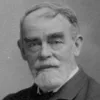When I speak of “the sinner,” I do not mean the man who commits sin: sins are committed by everyone or no one, according to our definition of the word. I mean the man who is absorbed in the consciousness of sin. This man is perpetually incurring his own disapproval, which, if he is religious, he interprets as the disapproval of God. He has an image of himself as he thinks he ought to be, which is in continual conflict with his knowledge of himself as he is.
Bertrand Russell (1872-1970) English mathematician and philosopher
Conquest of Happiness, Part 1, ch. 1 “What Makes People Unhappy?” (1930)
(Source)
Quotations about:
self-approval
Note not all quotations have been tagged, so Search may find additional quotes on this topic.
To be honest, to be kind — to earn a little and to spend a little less, to make upon the whole a family happier for his presence, to renounce when that shall be necessary and not be embittered, to keep a few friends, but these without capitulation — above all, on the same grim condition, to keep friends with himself — here is a task for all that a man has of fortitude and delicacy. He has an ambitious soul who would ask more; he has a hopeful spirit who should look in such an enterprise to be successful.
Robert Louis Stevenson (1850-1894) Scottish essayist, novelist, poet
Essay (1888-12), “A Christmas Sermon,” sec. 1, Scribner’s Magazine, Vol. 4
(Source)
Originally written in the winter of 1887-88. Collected in Across the Plains, ch. 12 (1892).
Men whose only concern is other people’s opinion of them are like actors who put on a poor performance to win the applause of people of poor taste; some of them would be capable of good acting in front of a good audience. A decent man plays his part to the best of his ability, regardless of the taste of the gallery.
[Ceux qui rapportent tout à l’opinion ressemblent à ces comédiens qui jouent mal pour être applaudis, quand le goût du Public est mauvais. Quelques-uns auraient le moyen de bien jouer si le goût du Public était bon. L’honnête homme joue son rôle le mieux qu’il peut, sans songer à la galerie.]
Nicolas Chamfort (1741-1794) French writer, epigrammist (b. Nicolas-Sébastien Roch)
Products of Perfected Civilization [Produits de la Civilisation Perfectionée], Part 1 “Maxims and Thoughts [Maximes et Pensées],” ch. 2, ¶ 141 (1795) [tr. Parmée (2003), ¶ 117]
(Source)
(Source (French)). Alternate translations:Those who refer everything to the opinion of others are like comedians who act badly, when the public taste is bad, in order to be applauded. Some of them could have acted well if the taste of the audience had been good. An upright man plays his part as excellently as he can, with no thought for the gallery.
[tr. Mathers (1926)]Those who defer in everything to the general opinion are like actors who act badly in the hope of applause, when the public’s taste is bad. Some of them would be able to act well, if the public’s taste were good. An honest man plays his part as well as he can, without a thought for the gallery.
[tr. Merwin (1969)]Those who refer everything to public opinion are like those actors who play badly in order to be applauded, when public taste is bad. some would have an opportunity to act well, if public taste were good. The respectable man plays his part as best he can, without thinking of the gallery.
[tr. Pearson (1973)]
If men knew how to blush at their own actions, how many crimes, and not only those that are hidden, but those that are public and well known, would never be committed!
[Si l’homme savait rougir de soi, quels crimes, non seulement cachés, mais publics et connus, ne s’épargnerait-il pas!]
Jean de La Bruyère (1645-1696) French essayist, moralist
The Characters [Les Caractères], ch. 11 “Of Mankind [De l’Homme],” § 151 (11.151) (1688) [tr. Van Laun (1885)]
(Source)
(Source (French)). Alternate translations:If men could blush at their own actions, how many sins, publick and private, would they save by it?
[Bullord ed. (1696)]If Men knew how to blush at their own Actions, how many Crimes, publick and private, would they save by it!
[Curll ed. (1713)]If Men could blush for themselves, how many Sins, public and private, would they save by it!
[Browne ed. (1752)]If a man knew how to blush at his own actions, what crimes, not only secret but public and overt, would he not spare himself!
[tr. Stewart (1970)]
All things […] are best to those who know no better.
Samuel Butler (1835-1902) English novelist, satirist, scholar
“Ignorance”
(Source)
Full passage:The less Judgment any Man ha's the Better he is perswaded of his owne abilities, because he is not capable of understanding anything beyond it, and all things how mean so ever, are best to those who know no better: for beside the naturall affection that he has for himself, which go's very farre, the less he is able to improve and mend his Judgment, the higher value he sets upon it, and can no more correct his own false opinions, when he is at his height, than outgrow his own Stature.
Be a Friend to thyself, and others will be so too.
Thomas Fuller (1654-1734) English physician, preacher, aphorist, writer
Gnomologia: Adages and Proverbs (compiler), # 847 (1732)
(Source)
A man’s first care should be to avoid the reproaches of his own heart; his next, to escape the censures of the world. If the last interferes with the former, it ought to be entirely neglected; but otherwise there cannot be a greater satisfaction to an honest mind, than to see those approbations which it gives itself, seconded by the applauses of the public.
Joseph Addison (1672-1719) English essayist, poet, statesman
Essay (1711-07-20), The Spectator, No. 122
(Source)










